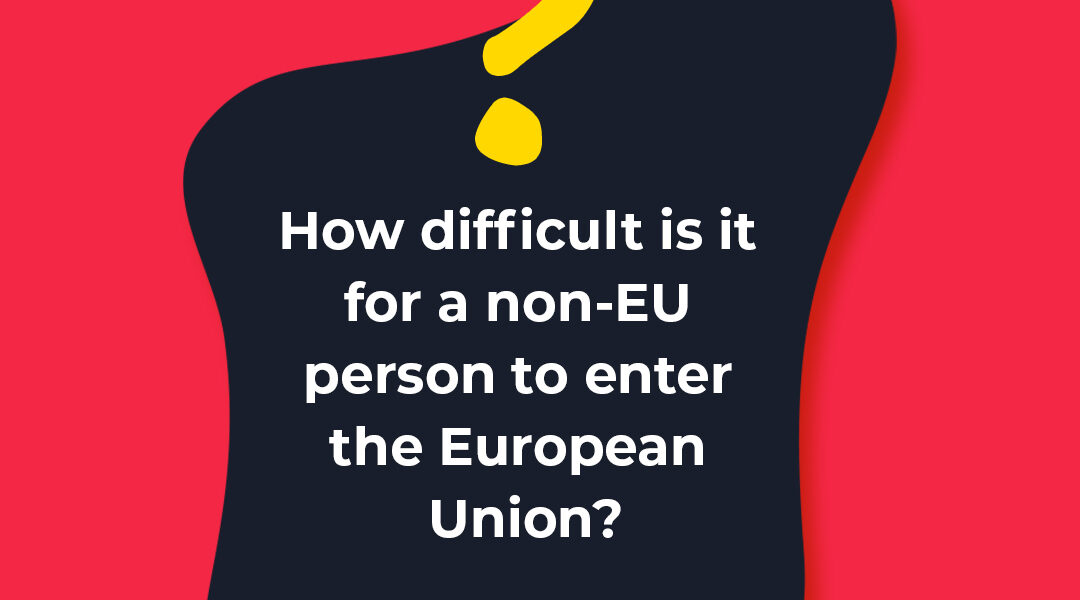
Schengen visa system and entry requirements
Diango’s story makes one reflect on the difficulties for a Cuban person to travel, but in fact the obstacles he encountered are common to many people globally. For a European person, getting around is something relatively simple and accessible. But taking a last-minute flight is something that most of the world’s population cannot do because of economic-social issues but mostly, political issues.
The free movement that European people enjoy, and the accessibility that a European passport has in the rest of the world, are unusual conditions compared to the rest of the world’s population. However, the abolition of internal borders within the European Union and the creation of the Schengen area is relatively recent. In place since 1995 and now valid in 27 countries, the agreement aims not only to remove internal borders but also to create a common external border policy that determines who can enter the EU freely and who needs a Schengen visa. Issued following common rules by member states, the visa is an expression of national sovereignty that characterizes all states worldwide, but entering the EU is particularly difficult.
The granting or denial of this individual, often discriminatory and discretionary, permission to enter a member state’s territory is granted prior to the person’s travel and arrival at the border. Visa issuance is an instrument of foreign policy and security whose issuance can be denied for economic purposes, migration control strategies, internal security and public order. In fact, almost all of the countries from which Schengen visa applications are required are low-income countries now referred to as the Global South*.
Key elements in the acceptance of the application are the nationality and the economic, social, and educational status of the person applying for it, and this creates differences even among citizens of the same state. In addition, there is a great deal of discretion and a lack of transparency in the decision-making process on the acceptance or denial of the visa application, the latter of which are many. Often states shift the responsibility for verifying the documentation of the person to other certifying bodies such as banks, employers and other state institutions. But what is required in the Schengen visa application?
The person is required to submit a detailed documentation that is often difficult to obtain in the country of origin. Passport, travel health insurance, documents stating the reason for the request to stay, means of transportation, evidence of being able to support oneself financially during the entire period of stay, documentation on the accommodation and its conditions, a document demonstrating the intention and affordability of returning to one’s country of origin and finally, the socio-professional status. In addition, for those from countries with high migration pressure, a risk assessment procedure is carried out on the possibility of the person to remain on the territory illegally beyond the visa expiration date. This is done through the analysis of the person’s previous experiences, the person’s contacts in the state of request of the visa and information on the family in the country of origin. In addition, the applicant must pay the visa fee and once here, consent to having their fingerprints taken.
All the problems, in terms of time and costs, that these applications determine are shared by many of the migrant scientists interviewed. Obtaining a visa for study or research purposes requires the submission of the documentation described above with the addition of documents attesting to enrollment in a course of study or a work contract, often translations of degrees obtained in the country of origin, insurance coverage for medical care, the availability of a certain amount for repatriation, and finally a demonstration attesting a precise amount of annual income. When accepted, the visa results in a long-term but fixed-term stay. This is then converted into a residence permit whose renewal application must be made whenever there is an expiring employment contract.
The visa regime and restrictive entry policies result in a clear system of economic injustice. Many turn out to be ineligible to it and must refrain from applying. As a consequence, these prerequisites and the costs related to both the visa and travel make legal migration really difficult for millions of people. Consequently, irregular migration, often risky to one’s life, remains the only real option to reach Europe for many people fleeing conflict, conditions of poverty and instability, environmental disasters and much more.
———————–
*“Global South,” a relative term that does not indicate a geographical location and includes very different countries, from emerging economies such as the BRICS, to low-income countries or others currently characterized by political, social and economic instability or armed conflicts.


